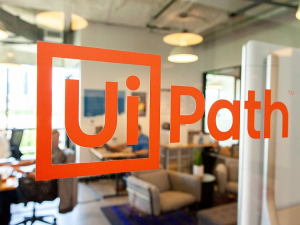In 2019, UiPath had 400,000 users in 200 countries. At the time, the robotic process automation (RPA) firm said it had increased its annual recurring revenue (ARR) from $8 million in April 2017 to over $200 million. UiPath said it had at that point grown its headcount by 16 times over a two-year period, to more than 2,500 employees. It also hinted that it was considering an IPO, a plan the company solidified in December.
The New York-based company uses artificial intelligence (AI) and machine learning to “automate millions of repetitive, mind-numbing tasks for business and government organizations all over the world, improving productivity, customer experience and employee job satisfaction.” Its goal is to give workers energy and time to focus on the more complex jobs, letting automation take care of the rest.
Founded in 2015, UiPath has automated millions of repetitive tasks for over 65% of the Fortune 500 companies. The company’s platform is used in a wide variety of departments and industries. For instance, banks rely on it to automate tasks such as transferring financial information from documents and emails to their systems of record, while manufacturers can use the platform to speed up the manual tasks involved in procuring raw materials. UiPath said last July that, across all the different segments where it operates, it had annual recurring revenues of more than $400 million.
The competitors in this market are especially fierce, with Microsoft Power Automate, Blue Prism, Automation Anywhere, and SAP also recently entering the space. However, it seems that UiPath’s growth is giving its rivals a run for its money. At the beginning of February, UiPath announced that it closed $750 million in new funding at a post-money valuation of $35 billion. UiPath had a valuation of $10 billion when it raised its Series E last year in July.
Alkeon Capital and Coatue led this latest round. They were joined by returning investors Altimeter Capital, Dragoneer, IVP, Sequoia, Tiger Global, and T. Rowe Price Associates. With automation now becoming a boardroom imperative with renewed urgency, UiPath said it will use this funding to deepen its investment in research and development.
























